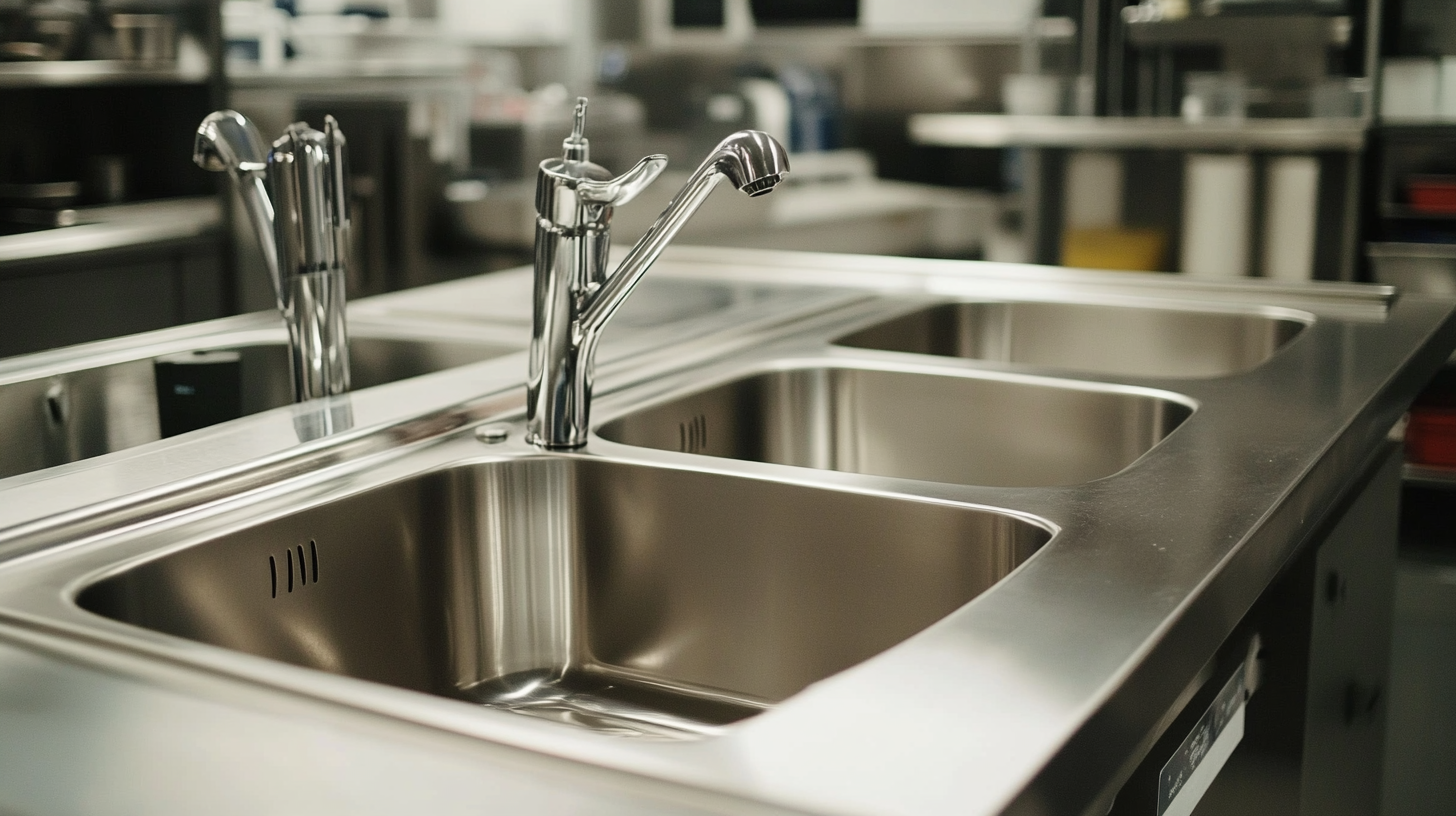How to Select the Right Stainless Steel Kitchen Sink for the Industrial Kitchen?
Food safety is one of the most crucial aspects of managing a restaurant kitchen successfully. To maintain your kitchen in compliance with regulations and food safety, you must have professional kitchen equipment and a proper cleaning routine.
Stainless steel is the norm for industrial kitchen sinks. It can withstand high temperatures, is long-lasting, and is simple to clean and maintain sanitization. This is also why stainless steel is used to make restaurant prep tables.
What Impact Does Stainless Steel Kitchen Sink Design Have on Workflow and Functionality?
A commercial kitchen’s sink design has a big influence on the area’s functioning and workflow, making it more than just an aesthetic option.
- Size & shape. Bottlenecks may result from a commercial stainless steel sink that is too tiny because it cannot handle large pots and pans or several jobs simultaneously. However, a big, heavy-duty kitchen sink might occupy important kitchen space, leaving less room for other necessary appliances.
- Material. Industrial kitchen sinks frequently use stainless steel because of its general durability, simplicity of cleaning, and corrosion resistance. Additionally, Amgood stainless steel sinks are adaptable, look good in various kitchen designs, and withstand the rigors of frequent, heavy use.
- Placement and accessibility. To reduce the space between important workstations, place corrosion-resistant sinks carefully. A sink near the cooking area ensures that washing and rinsing may be completed rapidly without affecting the cooking process.
- Hygiene. Features like built-in splash guards, simple surfaces, and suitable drainage systems aid in preserving hygiene and stopping the spread of bacteria. For instance, touchless, durable kitchen faucets and wall-mounted sinks allow workers to wash their hands without coming into contact with any surfaces, lowering the risk of contamination.
How Can You Pick the Best Stainless Steel Kitchen Sink for Your Requirements?
Choosing the appropriate commercial stainless steel sink is essential to satisfying your kitchen’s needs. Here are some things to think about:
- Gauge. Steel with larger gauge numbers is more resilient to dents and scratches and, therefore, more long-lasting. 16-gauge stainless steel sinks are appropriate for most common applications, while 14-gauge sinks would be better for heavy-duty use.
- Water-saving features. Seek out high-quality kitchen sinks with water-saving features, such as pre-rinse sprayers or low-flow faucets. These choices can lower water use, which benefits your company’s bottom line and the environment.
- Local codes and regulations. Ensure the commercial kitchen sink you select conforms to regional health and safety standards. This involves fulfilling particular sink size, placement, and material criteria that change based on your area and your business.
- Ease of maintenance. Pick a sink that is simple to keep clean. Features like integrated drainboards and rounded corners can help maintain hygiene standards and make everyday cleaning chores easier.
- Space. Measure the space where the sink will be placed to ensure proper fit. Remember that bigger stainless steel sinks could take up more counter space, so make appropriate plans to keep your workflow productive.






